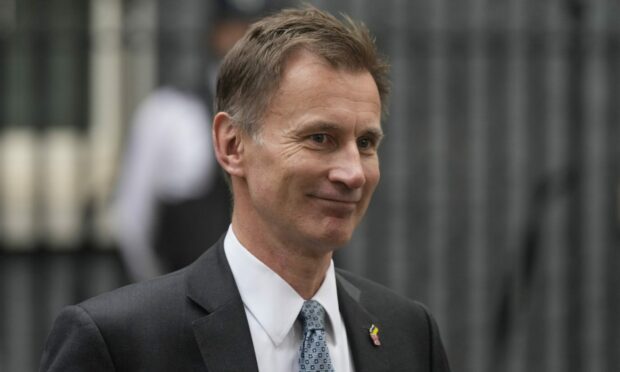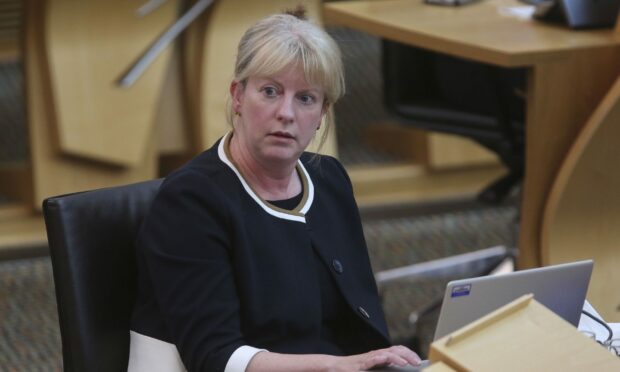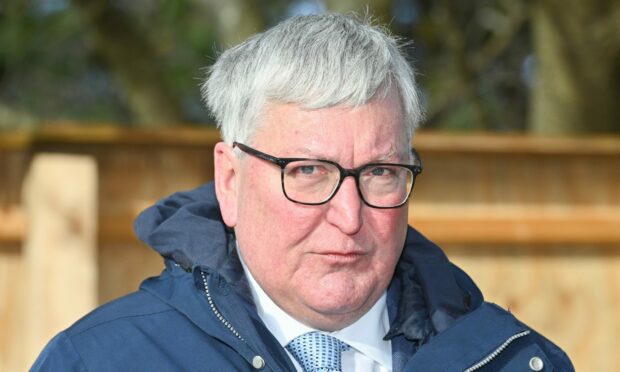Tory Chancellor Jeremy Hunt unveils his autumn statement on Wednesday as he faces demands from the SNP to stray away from major tax cuts.
Not everything he announces will apply in Scotland, but it will set the tone for how much cash Humza Yousaf’s party can find in next month’s Holyrood budget.
Here are five talking points as both governments look to meet spending commitments at a time when funds are limited.
1 – Tax divide
Prime Minister Rishi Sunak vowed to cut taxes as the Tories try to put more money in the pockets of voters ahead of the next Westminster election.
Leading Conservatives insist this will be done gradually to avoid a repeat of last year’s disastrous mini-budget which led to the downfall of Liz Truss.
However, the SNP says the Chancellor should focus on spending to help those struggling to get by instead of slashing taxes when budgets are stretched.
Deputy First Minister and Holyrood finance chief Shona Robison claims cuts would “place even greater pressure” on the UK’s finances.
Last year, SNP ministers claimed Tory policies forced them into cutting crucial services in Scotland due to skyrocketing inflation.
Speaking in Holyrood on Tuesday, Ms Robison said “significant challenges” still remain as a result of this.
2 – How will the council tax freeze be funded?
Splits over tax policy feed right into one of the biggest promises made by the first minister at October’s SNP conference.
Mr Yousaf had promised to freeze council tax rates across Scotland again, at a time when local authorities are struggling to find cash.
The move was a surprise to worried council leaders, and was branded an idea that had come from the “back of a fag packet”.
As finance chief, Ms Robison will soon need to cough up money to ensure the freeze is viable without huge cuts to local services such as libraries and swimming pools.
Mr Hunt’s statement will determine how much as-yet-unknown funds flow to Scotland, which would give Ms Robison more breathing space to fund the expensive policy.
The finance secretary is also arguing for an increase to the government’s capital budget, leaving more room to spend on key infrastructure projects in local communities.
3 – Will whisky tax go up?
In a rare moment of unity, political rivals across Scotland agree on one thing – that Mr Hunt should freeze whisky duty.
It’s been hinted the chancellor could increase taxes on Scotland’s national drink by 15%, despite fears it will hurt distilleries who say they already pay plenty.
Graeme Littlejohn, strategy director for the Scotch Whisky Association, says the current burden on the industry is “not sustainable”.
SNP MP Richard Thomson, who represents the Gordon constituency, warned a duty increase risks costing the industry up to £100 million.
Scottish Tory leader Douglas Ross said on Sunday he does not want to see taxes on whisky rise any higher.
But the UK treasury pointed out that whisky duty had either been frozen or cut at nine of the last 10 budgets.
4 – Will tax on oil and gas ease?
When he was still Boris Johnson’s chancellor, Mr Sunak imposed a windfall tax on record profits being reaped by oil and gas firms.
The temporary levy was unpopular with energy bosses in the north-east and was initially opposed by Mr Sunak and the Scottish Tories.
Since then he has shown support for the fossil fuels industry by granting hundreds of new drilling licences, including the controversial Rosebank field in the North Sea.
Earlier this year the Tories said the windfall tax would be eased if energy prices fell far enough and profits for oil and gas firms decreased.
Last week, Banff and Buchan Tory MP David Duguid quizzed his party on the policy, claiming it was hampering investment in the North Sea.
Industry leaders will be watching closely on Wednesday to see if Mr Hunt announces any further changes to the levy.
5 – Can the SNP meet spending commitments next month?
Mr Hunt’s statement on Wednesday is a precursor to Ms Robison’s budget next month – where she will be expected to take action on major SNP promises.
Those long-awaited pledges include funding for the next stage of A9 dualling between Perth and Inverness.
The road widening scheme was originally due to be completed by 2025 but has been bogged down by delays due to high construction costs.
Inverness and Nairn SNP MSP Fergus Ewing, often critical of his own party, said Ms Robison should use this week as a chance to show they prioritise the project.
He told us it was a “disgrace” that no action has been taken on sections of the road to the north of Scotland which the government has guaranteed will be dualled.
Alongside this, SNP ministers will be expected to clarify where funds to help families devastated by Storm Babet in the north-east, particularly in Brechin, are coming from.
Last week it was announced grants will be dished out to families and businesses, but it’s not yet been established where the money for this will come from.
In Holyrood, Ms Robison warned Scotland’s budget for infrastructure projects was facing real-terms cuts from Westminster.
The finance chief also said uncertainty remains over what money will be available to spend ahead of Mr Hunt’s statement.





Conversation